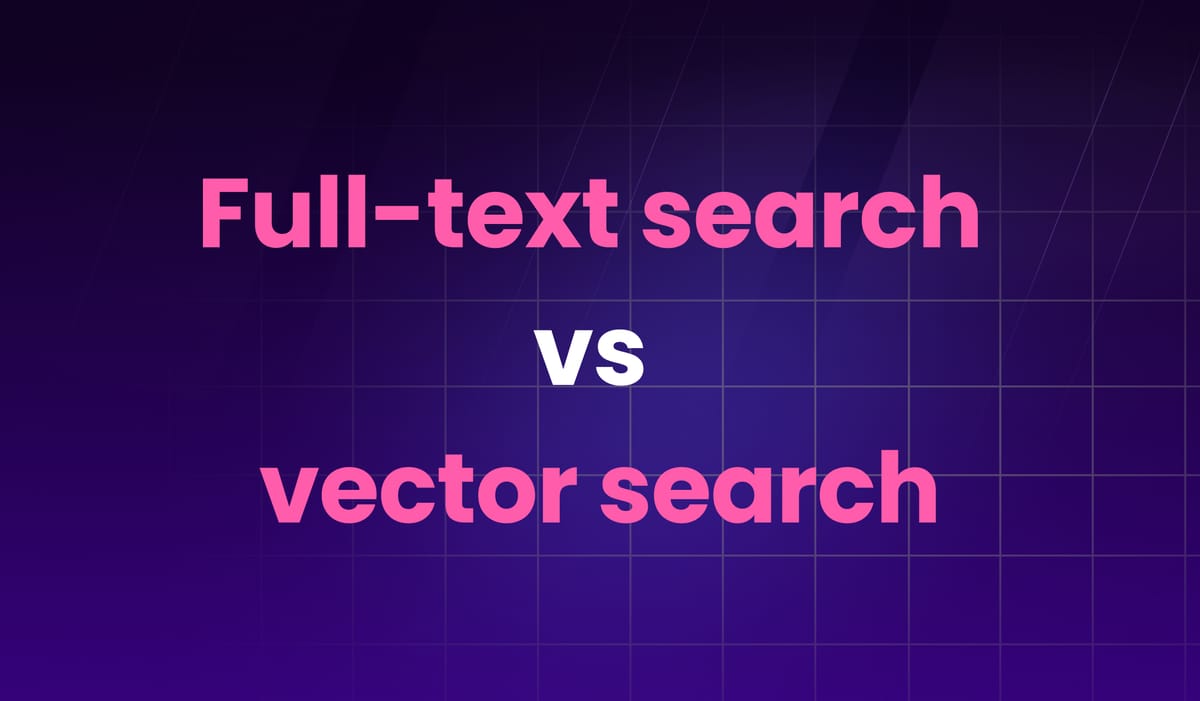I, ChatGPT
-
@Applied-Mediocrity That's more "information-opaque".
-
@dkf or just "dense".

-
@dkf said in I, ChatGPT:
The math to model such cells succinctly hasn't been settled yet, but they sure aren't modelled by the logistic function (or other sigmoid).
I think when these other things get a breakthrough the current stuff will probably be used on the new thing training
Or maybe we'll get an ensemble with mixed things in different kinds of layers so you can reuse that
Much of the advance of neural networks is because it's possible to accelerate it with GPUs, whatever you're doing is probably a lot harder to hardware away
-
@sockpuppet7 said in I, ChatGPT:
Much of the advance of neural networks is because it's possible to accelerate it with GPUs, whatever you're doing is probably a lot harder to hardware away
[Apart from the fact that I'm not doing that any more anyway...]
This is stuff that you pretty much need fancy hardware to tackle at all, not so much for computation but rather for communication. The number of messages involved is very high, and physical reconfiguration is simultaneously both much harder and critical to how real brains work. That's why brains aren't computers.
-
-
-
-
@topspin cam girls/YouTubers/twitch went bonkers over it because they were live but not exposing themselves on camera.
-
@DogsB I’ve read the summary twice and I’m more confused than ever.

-
A little background information into the stereotypes of AI. It mostly burns down to GIGO - because human curation takes time and costs $$$$$$$$$...
-
(But do read the whole article. There is context that... could be argued to justify the replacement.)
-
@Arantor said in I, ChatGPT:
(But do read the whole article. There is context that... could be argued to justify the replacement.)
“The BBC has always stood for quality in its factual and drama broadcasting."

-
https://youtu.be/LGwvLB7rhCE?si=ktxG41899tbnYhua&t=382
That’s actually a pretty good idea.
I still think that the status quo of having to agree to hundred page long EULAs, T&Cs, contracts that literally nobody reads and wouldn’t understand without a law degree anyway is fundamentally untenable. This must change, but I have no hope that it will change. So besides publicly shaming and boycotting companies for hiding user hostile shit in there (which is limited in effectiveness by everyone adopting the same disgusting practices), this might help create awareness.
-
@topspin said in I, ChatGPT:
That’s actually a pretty good idea.
But can current-day "AI" really properly analyze a legal document that's one or several hundred pages long? Or is it only pretending to do so?
(Also, the "Vultr" company name should have been enough warning they weren't going to play nice
 )
)
-
@Zerosquare said in I, ChatGPT:
But can current-day "AI" really properly analyze a legal document that's one or several hundred pages long? Or is it only pretending to do so?
Does it matter, if it ends up producing useful output? Like, if a real lawyer was reading these 900 pages, what is the likelihood that it would not read properly one of those 900 pages? Besides, what matters here is that the LLM has a relatively low-rate of false negatives (false positives are less of an issue, it's just clutter in the output). This rate doesn't need to be zero for the LLM to be useful.
Anyway, contrary to e.g. trying to make it play Doom, at least here you're using a "language" model for something that it is actually designed for ("language"). So I would have more confidence in it doing what you ask it to do rather than wildly hallucinating.
-
@remi said in I, ChatGPT:
Does it matter, if it ends up producing useful output?
How would you know?
-
@Applied-Mediocrity said in I, ChatGPT:
@remi said in I, ChatGPT:
Does it matter, if it ends up producing useful output?
How would you know?
That’s the part where “low false negatives” comes in. If it doesn’t report something problematic, the answer is: well fuck, you don’t.
But if it does produce it, you can easily verify it didn’t hallucinate what it quoted.
-
@topspin How would you know they're low? Is there some sort of deterministically calculated number that guarantees that any given LLM will emit this much false negatives and no more? That's the part that bugs me the most about practical use for business-critical problems. In my mind, false negatives are far worse than hallucinations.
-
@Applied-Mediocrity said in I, ChatGPT:
How would you know they're low?
You don't, if you just look at the result on one specific set of T&Cs. But if you (or some other (group of) people you trust) feed it enough T&Cs, some of which you already know they contain fishy stuff because it's been found by humans before, you can check that on the whole, the rate of false negatives is low. That's work, yes, but that's how you validate anything in the real world.
Now you can't guarantee that a low rate on known documents will necessarily mean a low rate on a new unknown document. But that's the same for any model you're applying on any kind of data, so there isn't anything new here. And yes, I'm calling the output of the LLM a "model" of the full T&C because that's what it is: a simplification of the thing that allows you to better understand it.
Besides, I don't think anyone would consider this LLM analysis as a full, airtight legal interpretation (if anything, because there ain't such a thing, it always depends on the judge etc.). But as a way to quickly flag if those 900 pages of T&C are just the usual bullshit, or if they are likely trying to find new and
 ways to shaft you, why not?
ways to shaft you, why not?In my mind, false negatives are far worse than hallucinations.
I agree, which is why I said a low rate of them was required. Hallucinations are kind of like false positives, you can spot and discard them fairly easily and as long as they don't make the output longer to read than the input, you've still gained some time overall. Though, humans being humans, they will still erode your confidence in the result, so keeping them low is likely a good thing. But less so than false negatives.
-
Question - I will admit my understanding of the actual mechanics are limited (which is why I'm a lightweight Luddite on the subject), but theoretically could it be possible to take a documentation store (say, a Confluence instance), plug it into an LLM, or even build a smaller LM out of it and use that to find things in the docs that aren't reliant on word matching?
As in matching by intent and pointing you at the source where that came from.
-
@Applied-Mediocrity said in I, ChatGPT:
@topspin How would you know they're low?
I don’t. I interpreted @remi’s post as “this is a property you want” (unlike low false positives, which is nice to have but not important), not as “this is a property LLMs have”.
-
@Applied-Mediocrity although to add: the current state is that you don’t read the fucking legalese at all, so your false negative rate is maximal. Can’t get worse than that (other than wasting time and potentially not getting an improvement).
-
@Arantor said in I, ChatGPT:
find things in the docs that aren't reliant on word matching?
Not sure what you mean by that? Is that "searching the doc without having to type the exact words of the section you're looking for?" Like a Google search returning terms related to your query, not necessarily those exact words? If so, I'm guessing this would be a thing that LLMs are absolutely perfectly suited to do, this being basically how they're built ("statistically, these words happen in close relation to those words"). And I would be extremely surprised if Google and Bing do not already use that kind of technique internally (maybe not when you type your query, maybe that's part of their indexing).
But is that what you meant?
-
@topspin said in I, ChatGPT:
I interpreted @remi’s post as “this is a property you want” (unlike low false positives, which is nice to have but not important), not as “this is a property LLMs have”.

Re-reading the OP on that, my phrasing was indeed ambiguous and could be taken as meaning either. But you're right, I meant the former, not the latter.
I have no idea whether this is a property that LLMs do have, though since it's playing with language (rather than, say, playing with Doom), I have more hope that they do than the property of "being able to play Doom."
-
@remi said in I, ChatGPT:
Besides, I don't think anyone would consider this LLM analysis as a full, airtight legal interpretation
I believe naïve is a French word, yes?
AI is being shoehorned everywhere and treated as a general solution to all problems. Legal? Probably not. But in other domains it has been and absolutely will be considered airtight (with disastrous results; one with cancer patients, I believe), because people just don't care and want to trust the machine. Pray tell, Mr. Babbage, and all that.
That's work, yes, but that's how you validate anything in the real world.
With the crucial difference being that once you implement an algorithm, for all datasets it will return the only possible answer, and unexpected inputs will either crash the program or get discarded early. It may be wrong, but every step of the way can be formally verified.
Using LLMs is basically admitting that rather than trying to describe the steps of solving complex problems, we - fuck it - will relax the conditions and accept impure results. It may be acceptable for toy problems and toy purposes, but it sets a dangerous precedent. People want to use technology. Outputs will be fed to other data systems, some of which may also be LLMs. GIGO all the way down.
-
@Applied-Mediocrity said in I, ChatGPT:
AI is being shoehorned everywhere and treated as a general solution to all problems. Legal? Probably not. But in other domains it has been and absolutely will be considered airtight (with disastrous results; one with cancer patients, I believe), because people just don't care and want to trust the machine. Pray tell, Mr. Babbage, and all that.
Fair enough, but I was talking about this specific application case (to read T&C). I agree that "AI" (which has not much of "I" and is about as "A" as anything that's on a computer) is sometimes seen as a solution to everything. But that this is wrong does not mean that AI can't be a solution to some things. And reading text seems to me very much what an LLM is designed to do, so that seems a rather good application of it.
With the crucial difference being that once you implement an algorithm, for all datasets it will return the only possible answer, and unexpected inputs will either crash the program or get discarded early. It may be wrong, but every step of the way can be formally verified.
Meh. You've probably not dealt with a lot complex scientific (or, maybe, I should say "scientific") models. A lot of them are not built from first principles and equations, but include a lot of empirical knowledge (aka heuristics aka fudge factors...). So "formally verifying" them... yeah, good luck with that.
Using LLMs is basically admitting that rather than trying to describe the steps of solving complex problems, we - fuck it - will relax the conditions and accept impure results.
That is not specific to LLMs, at all. Before we all talked about LLMs the hype was about AI in general, and before that ML (machine learning) and before that Big Data. But at their core, "big data" and "machine learning" can be nothing more than doing a linear regression through data -- and pretty much any real world model includes a linear regression. Sure, LLMs go further than that. But non-LLM-models also go further than that. My point is that using a model that we know is imprecise and only calibrated through real data (as opposed to some theoretical background) is something that has been done since... forever. LLMs aren't that different in that regard.
It may be acceptable for toy problems and toy purposes, but it sets a dangerous precedent. People want to use technology. Outputs will be fed to other data systems, some of which may also be LLMs. GIGO all the way down.
Yeah, lolz... if you knew the "models" that go into my day work and what part of our society relies on it, maybe you wouldn't be so afraid of LLMs being misused

-
@Applied-Mediocrity not sure about which cancer thing you’re referring to exactly, but medical diagnosis is already anything but airtight. And computer-based regression models are outperforming human doctors in certain scenarios (although I’m sure those are based on harder statistics than LLM nonsense). You just have to keep that in mind: It’s a tool with imperfections, and the doctor should have the final say.
Easier to achieve with actual professionals than with your everyday layman.
-
@remi said in I, ChatGPT:
Yeah, lolz... if you knew the "models" that go into my day work and what part of our society relies on it, maybe you wouldn't be so afraid of LLMs being misused
Au contraire! Wait until I blame you for being the reason why we can't have nice things

-
@topspin said in I, ChatGPT:
not sure about which cancer thing you’re referring to exactly,
IBM Watson
-
@Applied-Mediocrity you know, I'm sometimes amazed that with all the approximations and "models" that we use, there are still some Nice Things churning out at the end of the chain.
I'm also amazed that people pay me to do that. I'm more worried when they ask me to justify my salary, but so far I've managed to survive that

-
@remi said in I, ChatGPT:
it
That's not a typo. It is the correct pronoun for a lawyer, since it is not human.
-
@Applied-Mediocrity said in I, ChatGPT:
@remi said in I, ChatGPT:
Does it matter, if it ends up producing useful output?
How would you know?
You have another AI analyze the AI's analysis for usefulness, of course.
-
@topspin said in I, ChatGPT:
That’s actually a pretty good idea.
tl;dw But I have some words about this:
-
@Arantor said in I, ChatGPT:
Question - I will admit my understanding of the actual mechanics are limited (which is why I'm a lightweight Luddite on the subject), but theoretically could it be possible to take a documentation store (say, a Confluence instance), plug it into an LLM, or even build a smaller LM out of it and use that to find things in the docs that aren't reliant on word matching?
As in matching by intent and pointing you at the source where that came from.
It is certainly possible to train smaller LLMs on more focused topics and get useful things out of them. I know that's been going on at my company.
-
@boomzilla this is how I decided to read the title of your link.


That would fit well within what their T&C allows them to do.

-
@boomzilla said in I, ChatGPT:
It is certainly possible to train smaller LLMs on more focused topics and get useful things out of them. I know that's been going on at my company.
Yeah, some people in my company have also done that IIRC. Their problem was that in our field we sometimes get data reports that are decades old and of course don't follow any sort of standard -- and a lot, if not most, of the type of data we're dealing with isn't numerical data, it's more maps and human interpretations, so it's not just pulling out numbers from an old print-out.
Apparently training some sort of AI on that yielded great results in that they were able to query the mush of data and get meaningful answers, including asking a text-based question (duh) and getting pictures and maps as part of the result.
-
@remi said in I, ChatGPT:
@Arantor said in I, ChatGPT:
find things in the docs that aren't reliant on word matching?
Not sure what you mean by that? Is that "searching the doc without having to type the exact words of the section you're looking for?" Like a Google search returning terms related to your query, not necessarily those exact words? If so, I'm guessing this would be a thing that LLMs are absolutely perfectly suited to do, this being basically how they're built ("statistically, these words happen in close relation to those words"). And I would be extremely surprised if Google and Bing do not already use that kind of technique internally (maybe not when you type your query, maybe that's part of their indexing).
But is that what you meant?
Well, I saw the comments elsewhere recently about Confluence search being crap. And then I realised that search in general was crap because inevitably they plugged in the words you typed vs the words in the local index.
My question - later answered by boom - is functionally: how can we build a better search for local/self hosted use where we feed it what we have and we get better results back than “here are all the documents that contained the words you specifically used”
Like a Google for your content except not fucked to hell with weighted results for your content, and that you can keep locally and not run any risks of your content being exfiltrated.
-
@Arantor said in I, ChatGPT:
Well, I saw the comments elsewhere recently about Confluence search being crap. And then I realised that search in general was crap because inevitably they plugged in the words you typed vs the words in the local index.
My question - later answered by boom - is functionally: how can we build a better search for local/self hosted use where we feed it what we have and we get better results back than “here are all the documents that contained the words you specifically used”
Like a Google for your content except not fucked to hell with weighted results for your content, and that you can keep locally and not run any risks of your content being exfiltrated.
Sounds like you want the full text search capabilities of Cassandra or SQLite. Those depend on building suitable indices ahead of time, and also on keeping those indices up to date. (I don't know very much about Cassandra, BTW.) The indices take a fair bit of space, and depend on having a good stemmer to extract the root forms of words. I guess you could also use an LLM tokenizer for that as the problem is similar... but I am really just guessing wildly.
-
@dkf well, I’ve seen ElasticSearch with stemming but it’s still just… matching the words you type with the words in the search index, rather than trying to do something about semantic meaning thereof.
-
@Arantor said in I, ChatGPT:
Well, I saw the comments elsewhere recently about Confluence search being crap. And then I realised that search in general was crap because inevitably they plugged in the words you typed vs the words in the local index.
My question - later answered by boom - is functionally: how can we build a better search for local/self hosted use where we feed it what we have and we get better results back than “here are all the documents that contained the words you specifically used”
Like a Google for your content except not fucked to hell with weighted results for your content, and that you can keep locally and not run any risks of your content being exfiltratedin AI it's common to convert the text to be searched to tokens, and when searching we compare the tokenized question with each slice of the tokenized text. a popular database that implements that is milvus
-
@sockpuppet7 does it work better than ElasticSearch (or NodeBB search for that matter)?
-
@Arantor said in I, ChatGPT:
@sockpuppet7 does it work better than ElasticSearch (or NodeBB search for that matter)?
We really need a “the bar fell to the ground” emoji or something.
-
@Arantor said in I, ChatGPT:
@sockpuppet7 does it work better than ElasticSearch (or NodeBB search for that matter)?
I think so. I did some googling and I think this explains it well:
-
@Arantor solr use to do that. Just remember to make it case-insensitive instead of creating a second index for that .toLower()ing everything. Because what's reading the manual between friends.

Also don’t make private internal comments publically searchable.

-
While the short films are impressive, we've already seen some glaring inconsistencies in Sora footage OpenAI has shared, suggesting OpenAI may be overselling the tool's real-world capabilities by cherry-picking particularly impressive examples.

-
@DogsB said in I, ChatGPT:
@Arantor solr use to do that. Just remember to make it case-insensitive instead of creating a second index for that .toLower()ing everything. Because what's reading the manual between friends.

Also don’t make private internal comments publically searchable.

It did? I used to have a Solr based app, I have no memory of it doing anything at all clever.
-
The logical extension of programming by SO answer and leftpad, I suppose.
-
And it’s only going to get worse. xz/lzma demonstrated that a supply side attack at scale was possible - and it was only caught by good fortune for the most part.
This just cracks open the attack surface quite a margin.
-
@Arantor Don't worry! There will be "many AIs" looking at the code

-


 Projekt Melody - Wikipedia
Projekt Melody - Wikipedia




 Full-text search vs vector search
Full-text search vs vector search



